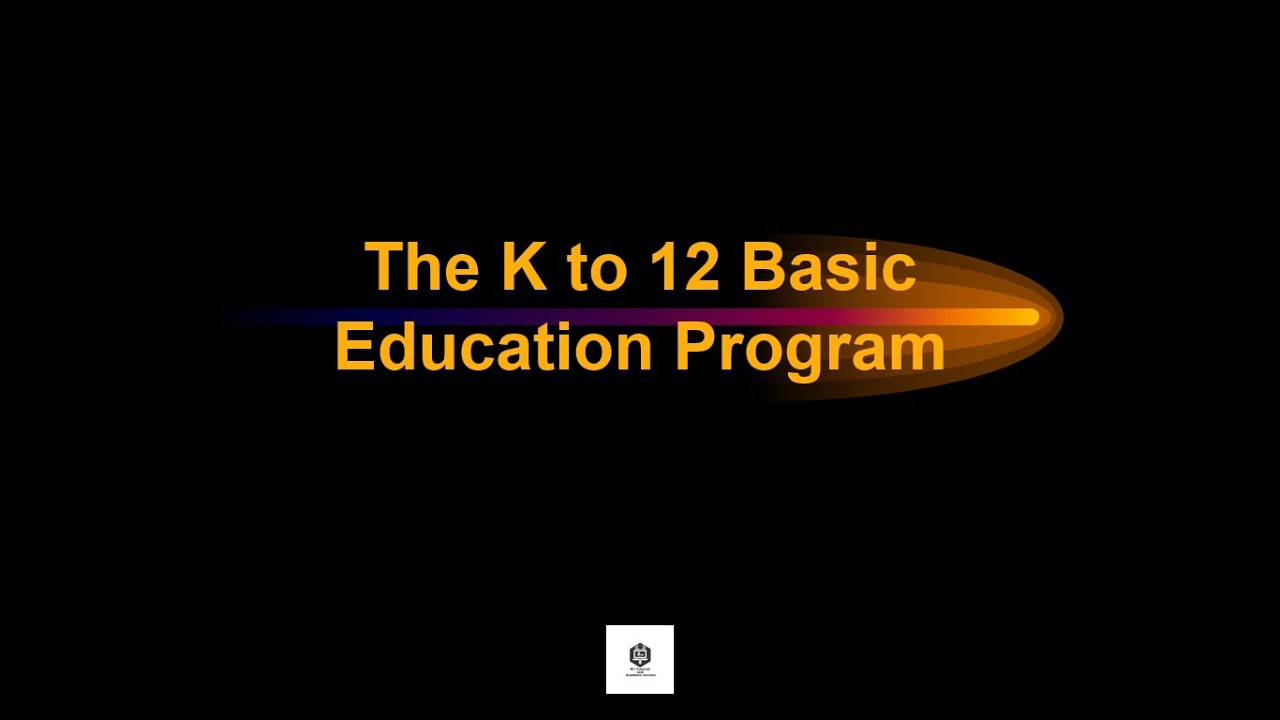Why do we need to revise the K to 12 Curriculum?
Summary
TLDRThe introduction of the K-12 program in the Philippines represents a significant shift in the education system, transitioning from a 10-year to a 12-year basic education model through Republic Act 10533. Despite the implementation starting in 2011 and completing in 2018, assessments indicate no improvement in student performance, highlighting the need for curriculum enhancement. A review conducted by the Department of Education, alongside various stakeholders, identified issues such as a congested curriculum, misplaced prerequisites, and an imbalance in cognitive demands. These findings led to the development of the Matatag curriculum, aimed at improving educational outcomes and addressing the evolving needs of learners.
Takeaways
- 📚 The K-12 program in the Philippines aims to enhance the basic education system by extending the curriculum from 10 years to 12 years.
- 🇵🇭 Prior to K-12, the Philippines was one of only three countries with a 10-year basic education cycle, alongside Chad and Angola.
- 🗓️ The phased implementation of K-12 began with kindergarten in the 2011-2012 school year and included progressive levels until full implementation in 2017-2018.
- 🎓 The first cohort of K-12 graduates (grade 6 and grade 12) will complete their education in the 2023-2024 school year.
- 🔍 Despite the program's launch, assessments reveal no significant improvement in student academic performance.
- 📊 The review of the K-12 curriculum indicated a need to address the congested curriculum causing stress for students and teachers.
- 📏 There are issues with misplaced prerequisite learning competencies, affecting students' mastery of skills.
- ⚖️ An imbalance of cognitive demand was identified, necessitating a focus on foundational skills for early learners, particularly in kindergarten to grade three.
- 🌍 The curriculum review was conducted with input from various stakeholders, including education experts and teachers from public and private schools.
- 🚀 The findings from the curriculum review aim to set future directions for improving the educational outcomes of Filipino learners.
Q & A
What is the purpose of the K to 12 program in the Philippines?
-The K to 12 program aims to enhance the Philippine basic education system by strengthening its curriculum and increasing the number of years of basic education from 10 years to 12 years.
What law established the K to 12 program in the Philippines?
-The K to 12 program was made into law by virtue of Republic Act 10533.
When did the implementation of the K to 12 program begin?
-The phased implementation of the K to 12 program began in the school year 2011-2012 with kindergarten learners, followed by grade 1 and grade 7 learners in school year 2012-2013.
Which cohort of learners will graduate from the K to 12 program in the school year 2023-2024?
-The first batch of graduates who have fully gone through the entire K to 12 program, specifically grade 6 and grade 12 learners, will graduate in the school year 2023-2024.
What challenges have been identified in the K to 12 program?
-Challenges include no improvement in academic performance as per national and international assessments, the need for basic education institutions to adapt to global trends, and learning issues due to a congested curriculum.
What findings were reported from the curriculum review of the K to 12 program?
-The curriculum review found that the curriculum content is congested, there are misplaced prerequisite learning competencies, and an imbalance in cognitive demand that affects foundational skills.
How does the current curriculum impact students and teachers?
-The congested curriculum causes severe stress to both students and teachers, leading to learning problems and issues that prevent students from reaching minimum standards.
What steps are being taken to improve the K to 12 curriculum?
-The Department of Education, in partnership with various stakeholders, conducted a rigorous review of the K to 12 curriculum to identify opportunities for improvement and enhance the quality of basic education.
Why is the review of learning competencies important?
-It is important to revisit learning competencies to ensure proper sequencing and mastery of prerequisite skills before introducing more complex skills.
What do international assessments suggest about the educational outcomes in the Philippines?
-International assessments and benchmarks indicate that significant work is needed to improve educational outcomes for learners in the Philippines.
Outlines

Esta sección está disponible solo para usuarios con suscripción. Por favor, mejora tu plan para acceder a esta parte.
Mejorar ahoraMindmap

Esta sección está disponible solo para usuarios con suscripción. Por favor, mejora tu plan para acceder a esta parte.
Mejorar ahoraKeywords

Esta sección está disponible solo para usuarios con suscripción. Por favor, mejora tu plan para acceder a esta parte.
Mejorar ahoraHighlights

Esta sección está disponible solo para usuarios con suscripción. Por favor, mejora tu plan para acceder a esta parte.
Mejorar ahoraTranscripts

Esta sección está disponible solo para usuarios con suscripción. Por favor, mejora tu plan para acceder a esta parte.
Mejorar ahoraVer Más Videos Relacionados

The Historical Foundation of Education in the Philippines Timeline (Selected Events)

R.A. 10533-Enhanced Basic Education Act of 2013 (Part 1: Sections 1-6) | K-12 Curriculum

K to 12 Basic Education Program in the Philippines

K to 12 Curriculum and its Implementation | Debate

The K to 12 Basic Education Program

8-12 linggong suspension sa regular academic program para tutukan ang mahina sa Math at... | 24 Oras
5.0 / 5 (0 votes)
